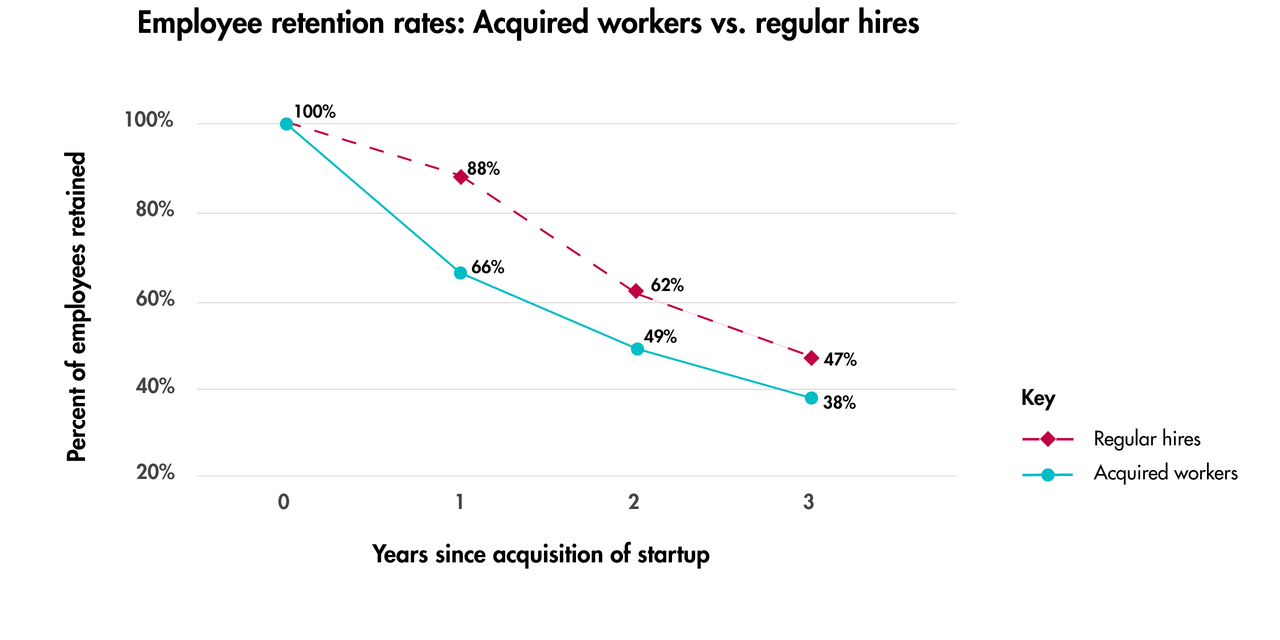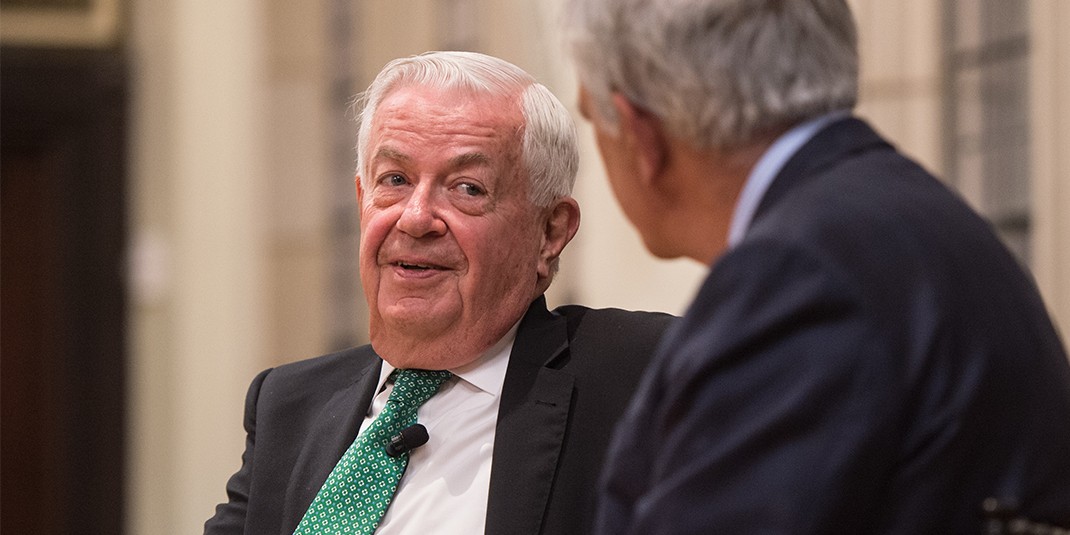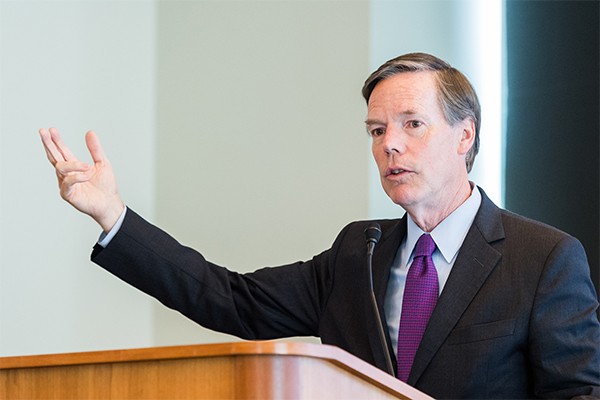Gig Jobs vs. Full-Time and Revenue Sharing – Boston News

Let’s explore some of the most interesting stories that have emerged from Boston business schools this week.
Should It Be a Gig or a Job? – Questrom School of Business News
New research from Boston University Questrom School of Business‘ Associate Professor Andrei Hagiu and National University of Singapore’s Julian Wright examines how firms classify an employee versus an independent contractor, and how this relates to revenue sharing.
Hagiu notes that this classification greatly depends on the amount of decision-making power that firms cede to workers—and that appropriate revenue sharing should follow suit.
“In many cases, the share of variable revenue that is retained by workers is a good proxy for whether they can be considered independent contractors or regular employees,” says Hagiu.
The research notes:
“Firms that wish to classify their workers as independent contractors and provide a higher share of transferable decisions to workers should be paying them at least half of variable revenues. Firms that pay less than half of variable revenues to a worker should likely employ the worker, but provide a lower share of transferable decisions to workers.”
You can find out more from the research here.
Your Acquired Hires are Leaving and Here’s Why – MIT Sloan Ideas That Matter
Large companies often acquire startups in order to eliminate competition, with the added benefit of gaining skilled and innovative workers. Unfortunately, new research from MIT Sloan doctoral candidate Daniel Kim shows that this “acqui-hiring” strategy is not as effective as some think.
According to Kim’s paper, “Predictable Exodus: Startup Acquisitions and Employee Departures,” within the first year of a company’s acquisition, 33 percent of acquired workers left, compared to 12 percent of regular hires.
While those percentages tend to level off over time, in the three-year window Kim studied, acquired workers were 15 percent more likely to leave than new hires. This exodus is largely due to an organizational mismatch and new hires’ lack of agency.

Employment retention data, courtesy of Meredith Somers at MIT Sloan.
“People who work at startups join a startup for a reason,” Kim says. “Primarily they want to be in a very entrepreneurial, scrappy organization. But once they get acquired by a big firm, that is in direct opposition with the preferences that they have.”
You can read more about Kim’s research here.
The Accidental Restaurateur – Carroll School of News
Joe Essa, BC Carroll Alum ‘79, told the Carroll School of Business Blog that it was “a bit of a fluke” that he ended up becoming a successful restaurateur and ultimately the President and CEO of Wolfgang Puck Worldwide, overseeing more than 50 eateries across the nation along with licensing Puck’s cookbooks, canned soup, and other consumer products.
In 1983, when tending to his ill father in Greensboro, Essa was approached by a real estate developer friend, who needed a restaurant to complete a shopping center project. Café Pasta, Greensboro’s first casual Italian restaurant, was born.
Essa refers to the curriculum he learned at Carroll to keep him on track: “I always drew upon my accounting training … I knew you had to end up with some money in the bank! So I was very disciplined in that regard from day one.”
Eventually Essa sold his share of Café Pasta and came to work with Wolfgang Puck in 1999. He spoke passionately about his eclectic role within the organization.
“It’s not just one kind of dining, it’s many different kinds of restaurants, different cuisine. And then looking into the leases, license agreements, and marketing and promotion for all those businesses. And the people you get to meet along the way are fascinating. You get up every day and it’s different, it’s exciting, and it’s humbling. I just count my blessings.”
Click here to find out more about Essa’s life and career.
HBS Examines the Allure of White-Collar Crime, and More – Boston News

Welcome back and a happy 2019!
Let’s explore some of the most interesting stories that have emerged from Boston business schools this week.
Interviewing White-Collar Criminals: 6 Tips from Harvard Business School’s Eugene Soltes – Journalist’s Resource
Denise-Marie Ordway from Journalist’s Resource recently profiled HBS professor Eugene Soltes, who’s 2016 book Why They Do It: Inside the Mind of the White-Collar Criminal surveys what “drove dozens of wealthy, successful businessmen to become white-collar criminals.”
Soltes offered six tips for journalists on how to build trust and develop rapports with potential sources behind bars.
- “Don’t lead with personal questions and questions that probe into the meatiest details of a convict’s crimes.”
- “Have a plan for whether and how you’ll use sensitive information that sources might divulge once they trust you.”
- “If you want prisoners to talk to you, write them a letter.”
- “When interviewing individuals who are incarcerated, choose phone calls over in-person meetings. You can develop a rapport more quickly through four 15-minute phone calls than one hour-long, in-person conversation.”
- “Establish a system of checking your biases to limit the impact your relationships with sources could have on your work.”
- “If you’re describing someone’s feelings, opinions or mindset, consider letting that person review what you have written to make sure it represents them accurately.”
You can read more from the Soltes profile on white collar criminals like Bernie Madoff in Journalist’s Resource.
Stocks & Bonds, Eggs & Bacon – Sawyer Business School
In early December, 2018, the first Summa Breakfast at the Sawyer Business School featured Amundi Pioneer Asset Management CIO Ken Taubes, MBA ’84, who offered his insights into “where the global economy has been and where he thinks it is going.”

A look inside the Summa Breakfast, held last month at Sawyer Business School / Photo via suffolk.edu
Taubes was surprisingly optimistic: “The dollar’s been strong, and the economy’s fine. In the macro sense for consumers, it hasn’t been this good in a long time.”
He also advises attendees to “turn off the noise and look for opportunities.”
You can read more about the recent Sawyer event here.
The Billionaire Next Door – Carroll School News
Boston College’s Joseph E. Corcoran Center for Real Estate and Urban Action recently hosted billionaire philanthropist Bill Cummings, a “model real estate developer with a strong conscience,” who spoke to roughly 70 BC community members.
After an overview of Cummings’ inspiring rags-to-riches story, along with a remarkable career ascent, he urged attendees to “do the things you want to do, and do them reasonably well.”

“An entrepreneur won’t find success by getting into a putatively lucrative industry that he’s not passionate about,” Cummings said at a recent BC event. / Photo via bc.edu
Cummings was recently honored as one of the Top 50 Givers by Forbes. The Cummings Foundation, according to the article, has “awarded more than $200 million to nonprofits in the Boston area.”
“The grants have made an impact near and far, from soup kitchens and homeless shelters in Essex, Middlesex, and Suffolk counties, all the way to Rwanda, where the foundation has established medical centers in collaboration with Boston-based nonprofit Partners in Health.”
Cummings closed with a paraphrased quote from dancer and actress Eleanor Powell:
“What we are is God’s gift to us. What we become, and what we do with our lives, is our gift to God.”
You can read more about Cummings here.
Investing In U.S. Innovation, and More – Boston News

Let’s explore some of the most interesting stories that have emerged from Boston business schools this week.
The 1 Thing Your Company Should Add To Its Retirement Benefits – MIT Sloan Newsroom
MIT Sloan Professor Lotte Bailyn took part in a three-year research study under HBS Professor of Business Administration Teresa Amabile to understand the “organizational, social, and psychological forces that can affect people’s retirement experiences.”
Bailyn outlined two strategies to help “pre- and early-retirement individuals manage their transition out of the workforce”:
- The “Phase-down” strategy enables a “retiring employee to work less while receiving a percentage of their pay, plus benefits. At the end of the phase-down — which can range from months to a handful of years —the person retires.”
- The “Contracted rehire” strategy allows companies to hire back employees on a contractual basis, which Bailyn explains, “allowed the company to get the specific niche knowledge that that person has, and by working with other people, employees in the organization could pass on that knowledge.”
Questrom School of Business Professor of Management Tim Hall, one of the researchers on the study, adds, “It’s surprising how little employing organizations are doing to help them [transition]— even though at the same time they’re interested in maybe helping people move on and opening up opportunities for younger people, they’re not. I think there’s a great opportunity cost they’re suffering by not doing that.”
You can find more information on the study here.
How the U.S. Can Rebuild Its Capacity to Innovate – Harvard Business Review
There is a growing trend of companies across all industries choosing to “invent and manufacture abroad” in what Harvard Business School’s Willy Shih describes as a loss of “industrial commons.” According to a recent Harvard Business Review article, “nearly half of the foreign R&D centers established in China now belong to U.S.-based companies.”

“Over recent decades, VCs have overwhelmingly focused on software and biotech investments over ‘hardware’ investments, closing additional doors to manufacturing innovations. It’s no wonder that so many promising manufacturing enterprises have to look abroad to simply get off the ground—let alone soar,” writes Sridhar Kota, Justin Talbot-Zorn, and Tom Mahoney.
The article recently outlines four principles the U.S. could use to reinvigorate its industrial ecosystems.
- Don’t Fear Picking Winners: “Rather than allowing promising R&D results to languish in labs or even be commercialized by foreign competitors, the U.S. should launch a National Innovation Foundation to invest in engineering and manufacturing R&D to mature emerging technologies and anchor their production onshore.”
- Invest in Hardware Startups and Scale-Ups: “U.S. policymakers can … build on existing resources to help innovative hardware startups and scale-ups succeed—particularly through domestic government procurement [the way] China has employed government procurement, strategic technology transfer, and domestic technology development to build its respected high-speed rail industry.”
- Mind the Mittelstand: Small and medium enterprises (SMMs) “amount to about 250,000 firms, or 98 percent of all manufacturing firms. By strengthening and supporting these firms, the U.S. could rebuild the backbone of its manufacturing sector.”
- Power to the People: “While American high schools typically require students to dissect a frog, few require students to disassemble a power tool. Exposure to real-world engineering is a crucial and cost-effective way to build interest in manufacturing careers—through either four-year engineering degrees or vocational training.”
You can find the entire HBR article on re-investing in American industry here.
Legacies Catching On – Carroll School News
BC Carroll School of Management Professor of Information Systems Gerald Kane recently put together a new research report as part of a gig guest editing the MIT Sloan Management Review’s Digital Business Initiative. The report, Coming of Age Digitally: Learning, Leadership, and Legacy, emphasizes the need for companies to foreground experimentation in their “digitally maturation” processes.
According to the Carroll School News, “Nimble businesses create the conditions for employees to take risks and try new things. The key to [prepare] for more digital disruption is to not simply hire but develop digital leaders.”
“Part of developing leaders means giving employees the time and space to acquire new skills, an area where many companies need to improve. Ninety percent of survey respondents said they need to update their digital skills at least yearly—and 44 percent said they need to do so ‘continually.’ Yet at ‘early-stage’ companies (which are paradoxically often the older companies), nearly 30 percent indicated that their employers offered little to no support to do so.”
You can read more about Kane’s research here.
The Politics of Purchases, Grocery Chain Rebuilds, and More – Boston News

Let’s explore some of the most interesting stories that have emerged from Boston business schools this week.
Why U.S. Grocery Chains Need More (and Better) Store-Brand Products – Harvard Business Review
Harvard Business Review recently revealed new insights into how store-brand products enable grocers to carve out a niche for themselves among more established competitors.
According to writers Marcel Corstjens and Rajiv Lal, “private-label products are essential to the profit margins of hard discounters,” like Wal-Mart, which typically sell 90 percent private-label goods compared to 15-51 percent of ordinary grocery stores, depending on where you are in the world. “Hard discounters win by only stocking products with a very high rotation.”
The two point to the miraculous feat of French supermarkets, which regained a significant market share after stores began “offering affordable goods of reasonable quality.”
In order for U.S. grocers to compete with hard discounters, the article notes that they “will have to offer private-label goods of the “right” quality at the “right” price. No easy feat, indeed.
You can read more from Corstjens and Lal here.
How Going Out Can Spur Outside-the-Box Thinking – MIT Sloan Newsroom
New research from MIT Sloan Assistant Professor of Work and Organization Studies Jackson Lu finds that people who have “had a close friendship or romantic relationship with a person from a culture drastically different from [their] own tend to exhibit higher creativity, innovation, and entrepreneurship.”
“‘Going Out’ of the Box: Close Intercultural Friendships and Romantic Relationships Spark Creativity, Workplace Innovation, and Entrepreneurship” suggests that “people cannot simply ‘collect’ intercultural relationships at a superficial level, but instead must engage in cultural learning at a deep level.”
Lu writes:
“When in an intercultural relationship, an individual should not eschew cultural differences but rather embrace them, because such differences enable one to discern and learn the underlying assumptions and values of both the foreign culture and the home culture. Without close social interactions, it can be difficult for individuals to juxtapose and synthesize different cultural perspectives to achieve cultural learning and produce creative insights.”
You can check out the rest of the article here.
How We Play Politics in the Store Aisles – Carroll School News
In a new Journal of Consumer Research study, Carroll Assistant Professor of Marketing Nailya Ordabayeva finds that “conservatives buy products they believe will signal their own superiority (big-name brands, high price tags) while liberals buy products they hope will show their uniqueness (unconventional colors or design).”
Ordabayeva’s research has “startling implications regarding the extent of our national polarization,” suggesting that people are paying very close attention to taglines like Mercedes’ “A Class Ahead” and Apple’s “Think Different.”

Professor Ordabayeva’s research finds that conservative and liberal Americans have decidedly different buying patterns, with conservatives favoring well-known brands and liberals opting for more creative choices.
“Better or Different? How Political Ideology Shapes Preferences for Differentiation in the Social Hierarchy,” can be found here and check out the rest of the entry on Carroll School News here.
Boston College Announces MBA Deadlines for 2018-19

The newest batch of Boston College MBA deadlines dates have been announced for the Carroll School of Management, going in to the 2018-19 academic season.
Round One
Deadlines: September 17, 2018
Notifications: December 5, 2018
Round Two
Deadlines: January 7, 2019
Notifications: March 15, 2019
Round Three
Deadlines: March 15, 2019
Notifications: May 1, 2019
Round Four (Final)
Deadlines: April 15, 2019
Notifications: June 5, 2019
Head over to the official BC Carroll website for more application information.
MIT Announces 9 African Startup Challenge Finalists, and More – Boston News

Let’s explore some of the most interesting stories that have emerged from Boston business schools this week.
These 9 African Startups are Working Toward a More Inclusive World – MIT Sloan Newsroom
MIT Sloan recently announced the nine African startup finalists of The Initiative on the Digital Economy’s Inclusive Innovation Challenge, all of which use technology to “reinvent the future of work.”
Initiative Director Erik Brynjolfsson writes, “If we employ inclusive innovation globally, it could be the best thing that ever happened to humanity. We can have more wealth, better health, and widely held prosperity.”
Here are the 9 African finalists:
- Wefarm provides a “mobile network accessed through SMS, where millions of small-scale farmers can share information.”
- PrepClass connects students and tutors.
- Wesabi connects “skilled laborers to individuals and businesses.”
- Lynk is an “online platform that operates as a hiring service and also a showcase for artisans.”
- Brave Venture Labs provides “talent sourcing software for growing companies.”
- Moringa School “teaches software development and offers professional skills training.”
- Safi Organics “provides small-scale farmers with affordable fertilizer for their crops.”
- Solar Freeze “offers mobile cold-storage units for small farmers to help reduce crop spoilage.”
- AgroCenta is a “digital platform for rural, small-scale farmers to connect with buyers and access financial services.”
The finalists, who will travel to Nairobi, Kenya in late August to “pitch their ideas at a regional competition,” were selected from almost 200 entrepreneurs from 16 countries.
You can read more about the African startup contenders here.
Collaborate, But Only Intermittently, According to New Study by Harvard Business School Professor and Colleagues – Harvard Business School News
HBS has published new PNAS research, which suggests that always-on technologies like Slack, email, and social media are less effective at complex problem solving than “intermittently on.”
HBS’s Ethan Bernstein, along with BU Questrom’s Jesse Shore, and Northeastern’s David Lazer believe their research could have widespread implications on the workplace, such as “alternating independent efforts with group work over a period of time to get optimal benefits.”
Bernstein writes, “As we replace those sorts of intermittent cycles with always-on technologies, we might be diminishing our capacity to solve problems well.”
You can read more about the research here.
Sizing up Markets, Peering into the Future – Carroll School News
BC Carroll recently hosted its annual Finance Conference in which financial experts delivered a surprisingly “upbeat forecast” on global investment, tech innovations, and cryptocurrencies.
Of the conference’s goals, John and Linda Powers Family Dean Andy Boynton ’78 writes, “We want our students to become lifelong learners, people who look for ideas in many different places. We want them to think both deeply and broadly, and to become great leaders for the future.”
Despite the relative stasis of the larger economy, Harvard’s Kennedy School of Government Professor Nicholas Burns ’78 described this particular moment in American history “consequential” and “chaotic” from a global economy standpoint.
Burns explains that “high on his list of global challenges for the United States is the rising dominance of nations to the East, especially China and India,” particular when the U.S. has not employed “skillful diplomacy and strategic thinking” to accommodate this “coming shift in global power.”

Nicholas Burns (’78), speaking recently at BC Carroll / Photo via bc.edu
He said, “There’s no question that by the next century, we’ll be a Pacific world,”
You can read more about the conference here.
